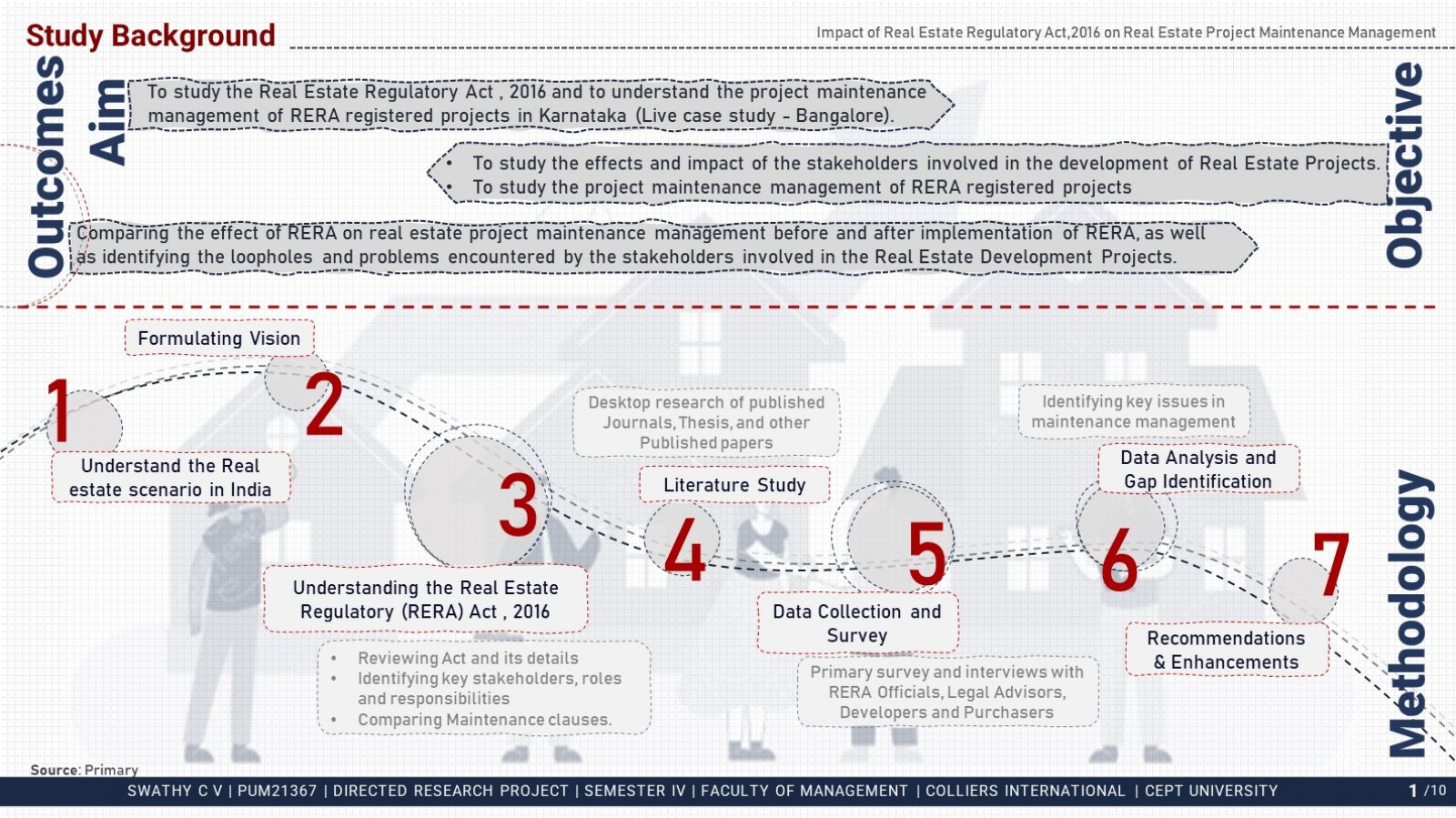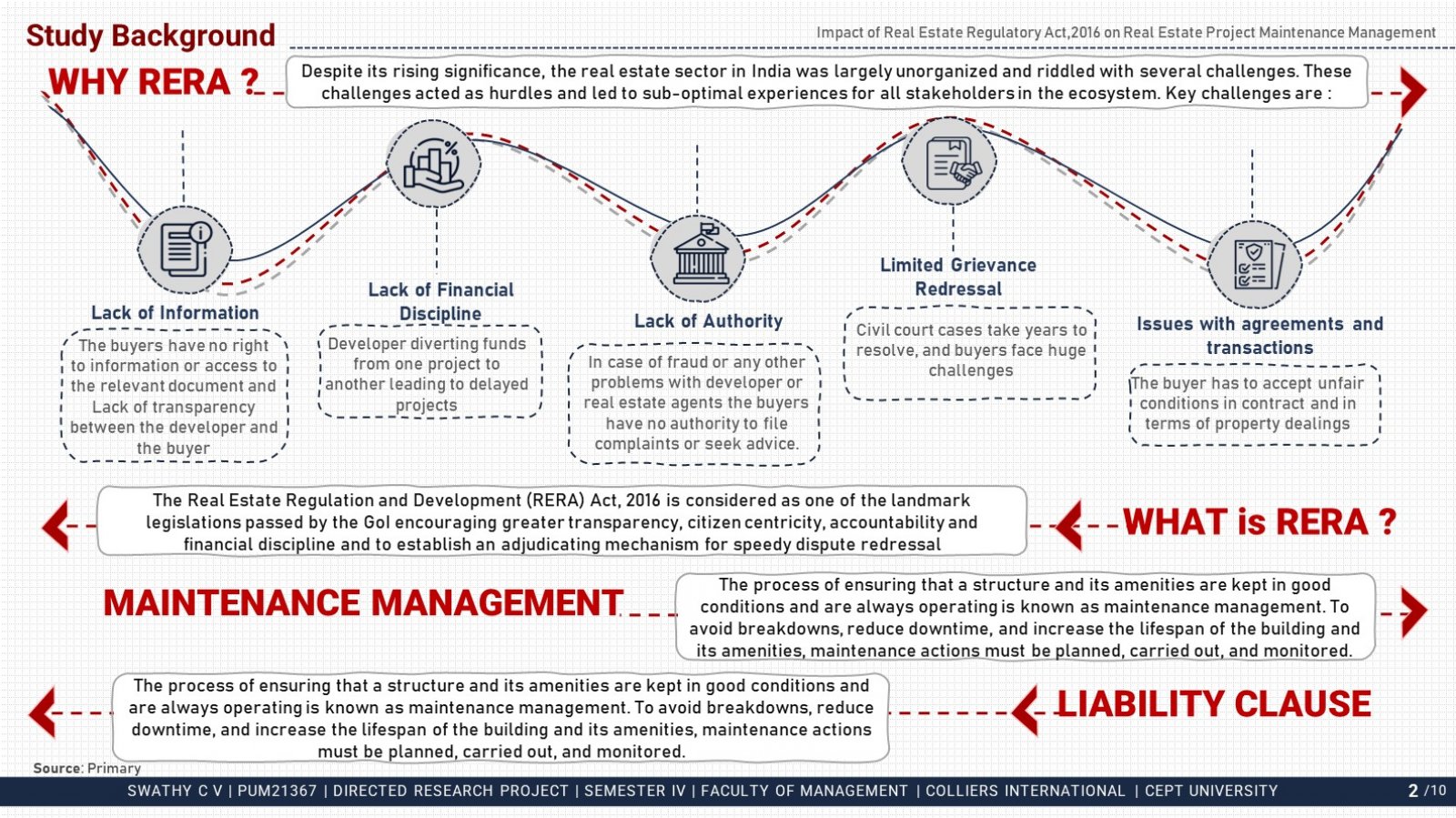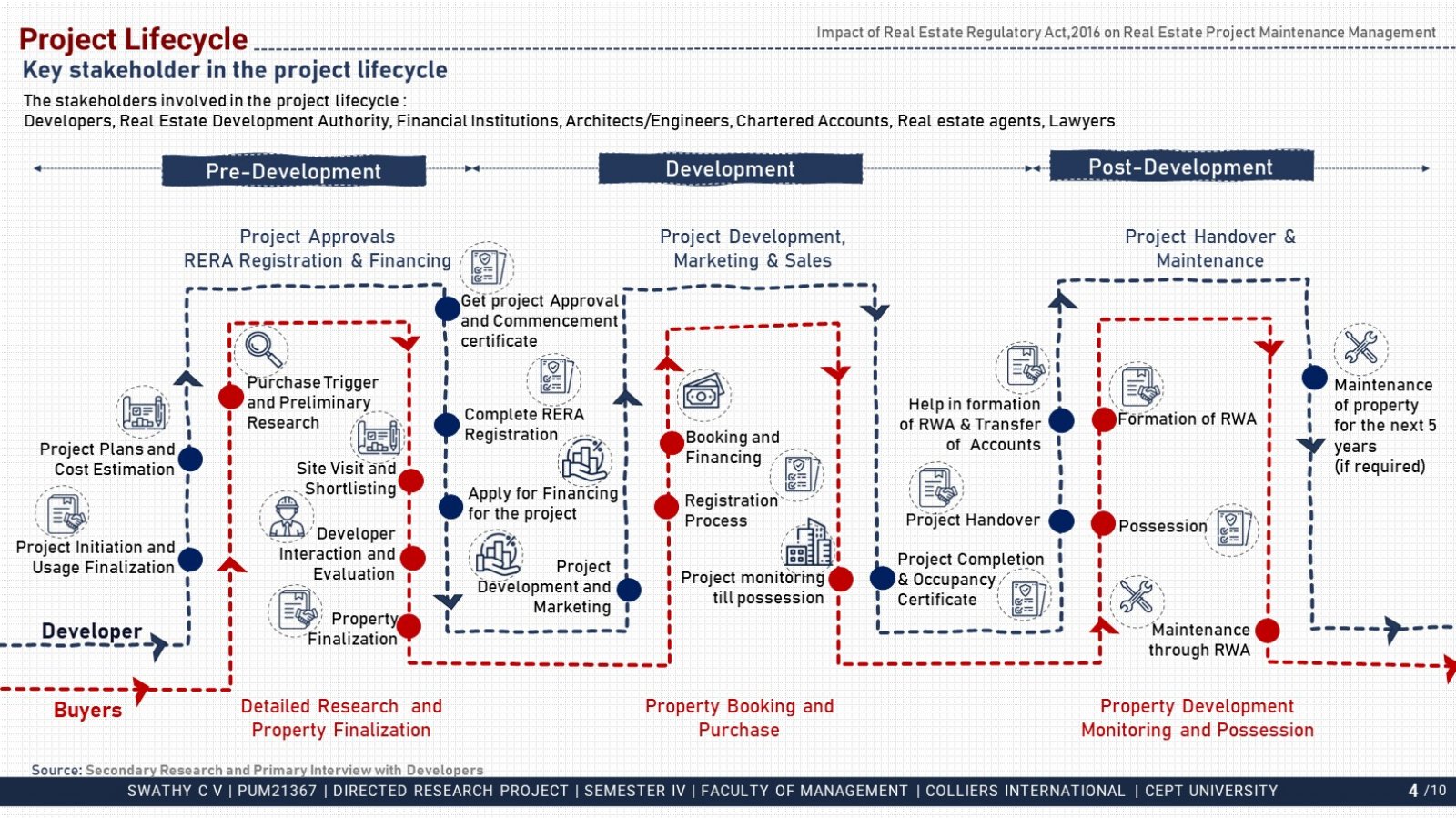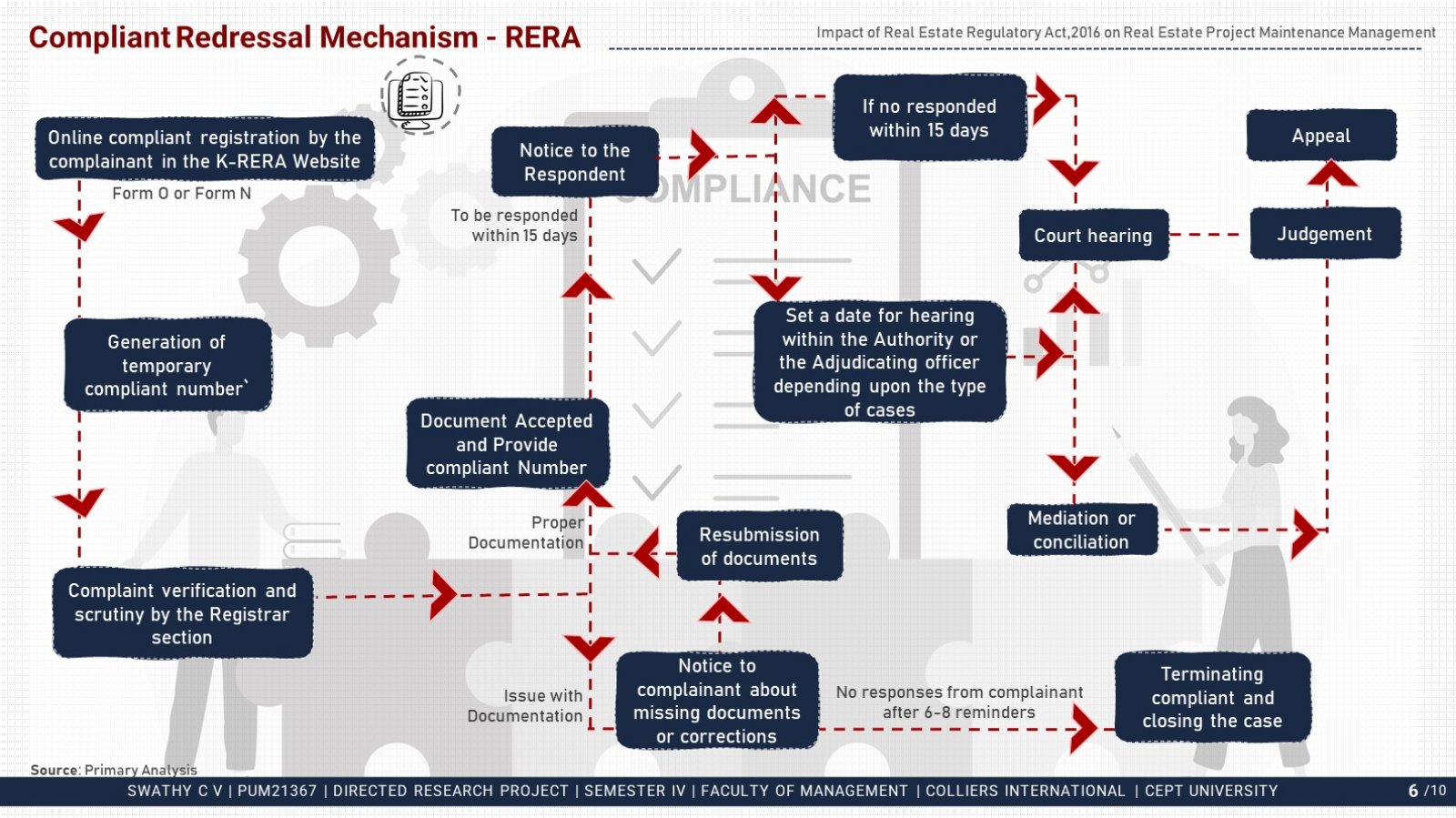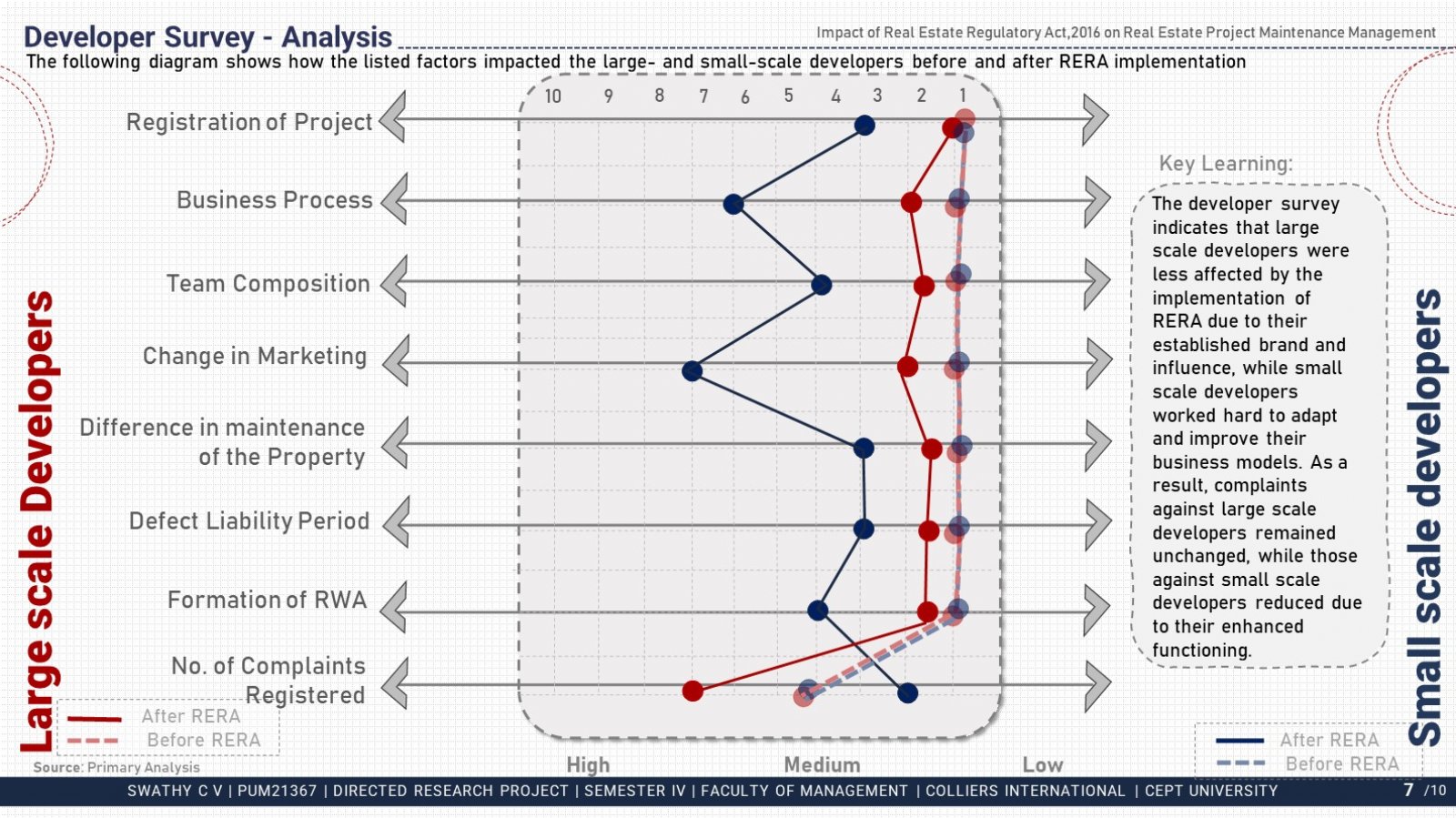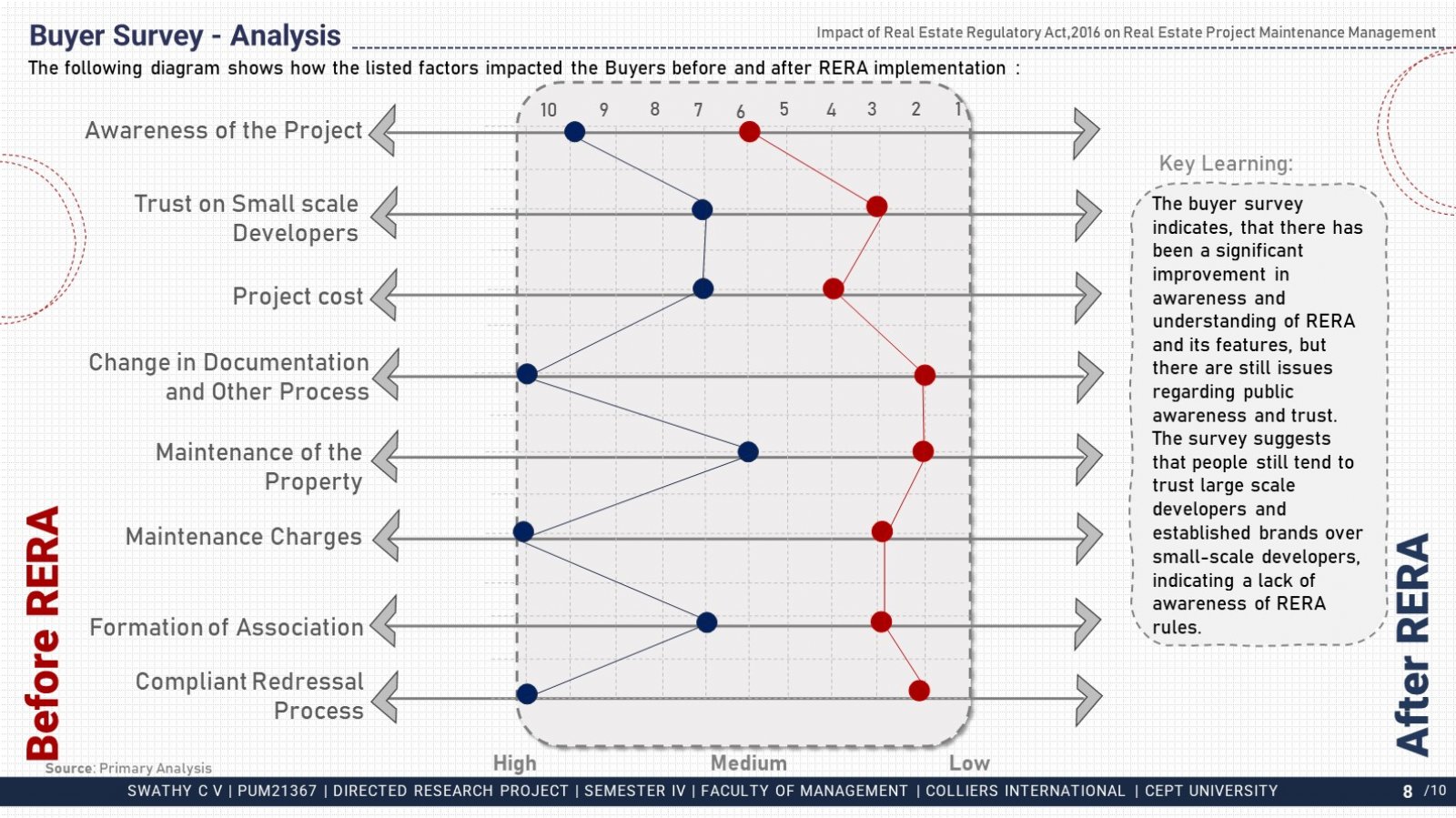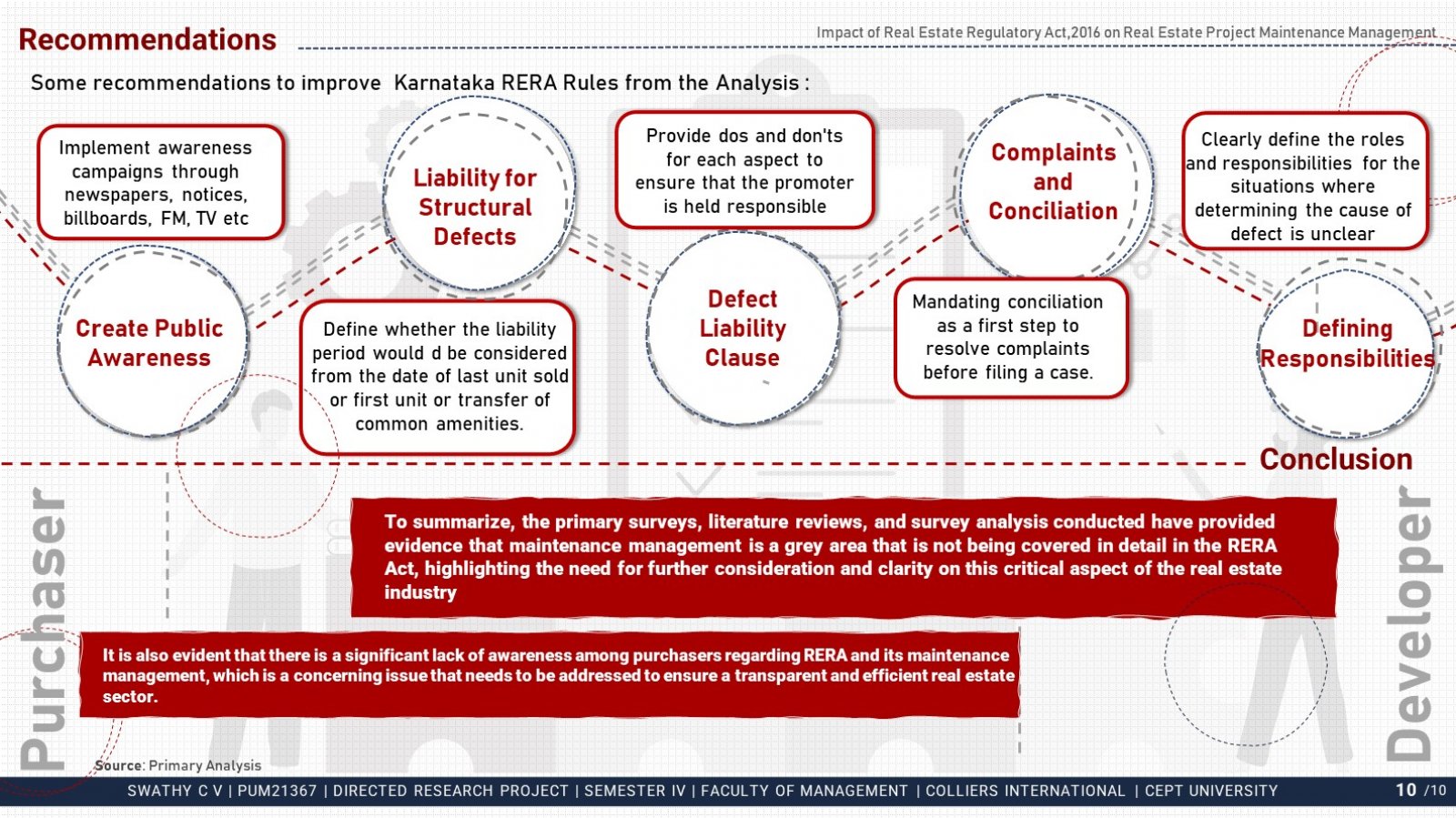Your browser is out-of-date!
For a richer surfing experience on our website, please update your browser. Update my browser now!
For a richer surfing experience on our website, please update your browser. Update my browser now!
The real estate industry is a significant contributor to the Indian economy, with high potential for growth and investment. However, the lack of regulation in the industry has often led to numerous issues, including project delays, disputes, and unfair practices. To address these concerns, the Indian government introduced the Real Estate Regulatory Act (RERA) in 2016, aimed at promoting transparency, accountability, and standardization in the real estate sector. The aim of the project is to examine the Real Estate Regulatory Act, 2016, assess the project maintenance management of RERA-registered projects in the state of Karnataka, focusing on Bangalore, analyze the importance of maintenance management for primary stakeholders, and study how RERA-registered projects are handled. The expected outcomes are to compare the effectiveness of RERA on real estate project maintenance management before and after implementation, as well as to identify any shortcomings and challenges faced by stakeholders. In India, the real estate sector encompasses housing, retail, hospitality, and business, making it a significant industry with significant economic and social implications. Nonetheless, the industry has faced a variety of challenges, such as a lack of information, financial discipline, authority, limited grievance redressal, and issues with agreements and transactions. To address these issues and ensure transparency and accountability in the industry, the Real Estate Regulatory Act (RERA) was enacted. The Act's key goals, as well as its main provisions and features, are presented in the study. Additionally, the study evaluates the state-wise implementation of the RERA Act and the Karnataka RERA Rules, 2017, in depth. Furthermore, the study focuses on the life cycle of a project, which consists of pre-development, development, and post-development phases. In the pre-development phase, developers conduct feasibility studies, secure financing, obtain approvals, and register projects with RERA. In the development phase, the actual construction of the project takes place, and once completed, the project is marketed and sold to potential buyers. In the post-development phase, the project is handed over to buyers, and ownership of the apartments is transferred. The buyer then maintains the property through the RWA. Major stakeholders are identified during this phase, and their roles, responsibilities, and risks are outlined. Each stakeholder has a unique set of responsibilities, and they play a critical role in ensuring the project's success. Despite the importance of each stakeholder's role, there are positives and negatives associated with different stakeholders. The introduction of RERA in India has had several positive impacts for real estate purchasers, including increased affirmation of timely completion and delivery of projects, mandatory project registration with a timeline for completion, improved construction quality, and transparency in agents/brokers, project delivery history, and pricing. However, there are also negatives, such as delays in project approval, higher prices, and a lack of awareness. RERA has the potential to increase efficiency and investment for developers, but it also has limitations and may create liquidity constraints and maintenance misunderstandings. Additionally, the study elaborates on maintenance management. This details the maintenance procedures that must be planned, carried out, and monitored to prevent breakdowns, minimize downtime, and lengthen the lifespan of the structure and its amenities. While the RERA act does not extensively explore maintenance management, a crucial clause advises developers to repair structural defects within 5 years without additional costs. The maintenance clause is also detailed in some states. Some of the key clauses include ensuring that the necessary services are supplied and maintained at fair prices until the association assumes responsibility for project maintenance. Maintenance fees can only be collected after obtaining BU permission. The builder must also maintain a separate account for any income received from the purchaser/allottee as a contribution to a corpus fund or for building maintenance, and they will not be allowed to use this fund for any other purpose. Finally, any interest earned on the maintenance funds will be credited to the same accounts and must be certified by a chartered accountant that demonstrates the money was used solely for the intended purpose. The Karnataka Real Estate Regulatory Authority (K-RERA) also offers an online platform for filing complaints against developers or purchasers. After registration, the complaint is verified and scrutinized. If the documents submitted are in order, the complaint is accepted and assigned a complaint number, and the respondent is notified. Complaints can be filed using Form N or Form O, with the authority comprising six benches and the adjudicating officer. The majority of complaints received in K-RERA authority are related to delay in possession of properties, refunds, and delay compensation, and the complaints received by the adjudicating officer are related to mental agony, compensation due to non-completion of amenities, and compensation for structural defects. Finally, surveys were conducted among purchasers and developers in Bangalore to gather information about the implementation and impact of the RERA Act and to understand the effects on maintenance management. The surveys revealed that large and small-scale developers faced different challenges in terms of project registration, business processes, marketing, and maintenance management. For buyers, there was a lack of awareness of the act, and many were unaware of RERA regulations and registration benefits. The study also identified areas of concern in the Act and made recommendations for Karnataka RERA rules. Firstly, public awareness campaigns should be initiated to educate people about the RERA Act and its benefits. Secondly, there should be a clear definition and clause for structural defect liability, and the roles and responsibilities of all stakeholders involved in the construction process should be clearly defined. Moreover, the complaint and conciliation process should be streamlined and more effective. Lastly, the absence of proper maintenance management in the RERA Act should be addressed, and awareness campaigns should be conducted to educate people about the RERA website and the complaint filing process. As a result, consumers will be able to make more informed decisions, and the real estate industry will become more transparent and efficient. To summarize, RERA has succeeded in regulating and safeguarding the real estate industry, but there are areas that still need improvement. The study provides valuable insights to enhance the Rules and ensure a transparent and efficient sector. One crucial aspect that requires further consideration and clarification is the liability clause, which is not extensively covered in the RERA Act. Additionally, the study reveals that there is a lack of awareness among buyers about RERA and maintenance management, which is concerning and needs to be addressed for the industry's transparency and efficiency.
